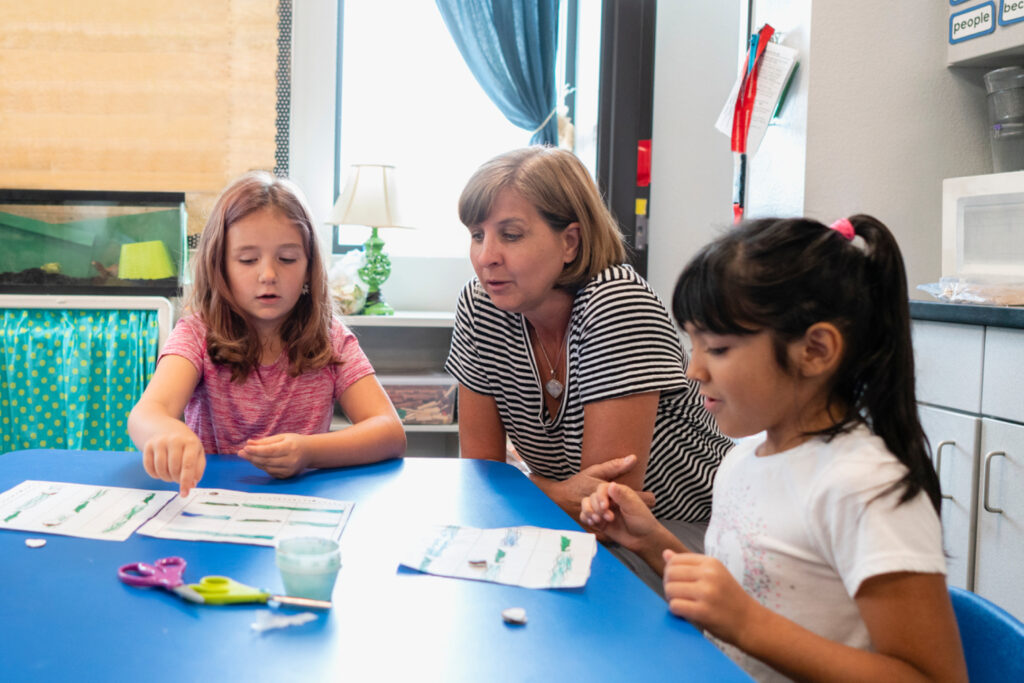
The Behavior Service Intervention (BSI) provides support to elementary school students in grades K-3 who are struggling with behavior and emotion regulation, as well as their educators and caregivers. The intervention is approximately 10 weeks long and includes 3 components: small-group instruction to help children learn social and emotional skills, biweekly teacher consultation, and family education.
BSI gives schools the opportunity to provide early intervention skills to students while increasing educator and caregiver capacity for sustaining ongoing progress.
Treatment Preview
Students: The Detective Club
School-based mental health staff will deliver The Detective Club, an 8-week behavioral and emotional skills small group for students in grades K–3. The program is informed by the Incredible Years®, an evidence-based program targeting social emotional learning, emotion regulation, and problem-solving.
Educators: Consultation
School-based mental health staff work collaboratively with educators who have identified students for BSI to implement effective behavioral strategies for a positive learning environment. The educator and school-based mental health professional collaboratively discuss specific student behaviors to target in the classroom, choose effective reinforcement strategies to use in the classroom, and use a behavior chart to help with consistency and reinforcement.
Caregivers: Psychoeducation
School-based mental health staff will provide caregivers whose students are participating in BSI psychoeducation and support on promoting positive behaviors at home, delivered through a workshop series. Staff also provide caregivers with weekly updates on what their child is learning in the Detective Club group.
Who Our Training Program is For
BSI is a training program designed to train school-based mental health professionals with mental health intervention experience to deliver and implement the BSI protocol with identified students struggling with emotional and behavioral difficulties, as well as those students’ classroom educators.
Training Program Components
Collaboration and Implementation Planning
- Our staff meets with key school district staff and administrators to lay the groundwork for successful implementation and sustainability of BSI treatment in schools.
- Information gathered from needs and readiness assessments guides implementation planning with administration and key staff.
Training and Resources
- School-based mental health professionals delivering BSI will engage in a two-day live training reviewing the three components of the intervention: small-group instruction, teacher consultation, and caregiver education.
- For all educators, a 1.5-hour training focused on the student-teacher relationship to support effective behaviors is offered to provide general skills applicable to all students.
- All trainees are provided access to our virtual training platform where they can find all the resources needed for successful implementation of the BSI protocol.
Consultation
- School-based mental health professionals will participate in up to 3 hours of virtual group consultation with an expert clinician, scheduled in half hour increments, where they will receive ongoing support on treatment implementation.
Assessment
- To ensure the highest quality of training and delivery of BSI in schools, our staff collects data including information on trainees’ skill knowledge, trainees’ feedback about the training, and student data before and after delivery of treatment to assess emotional and behavioral changes.